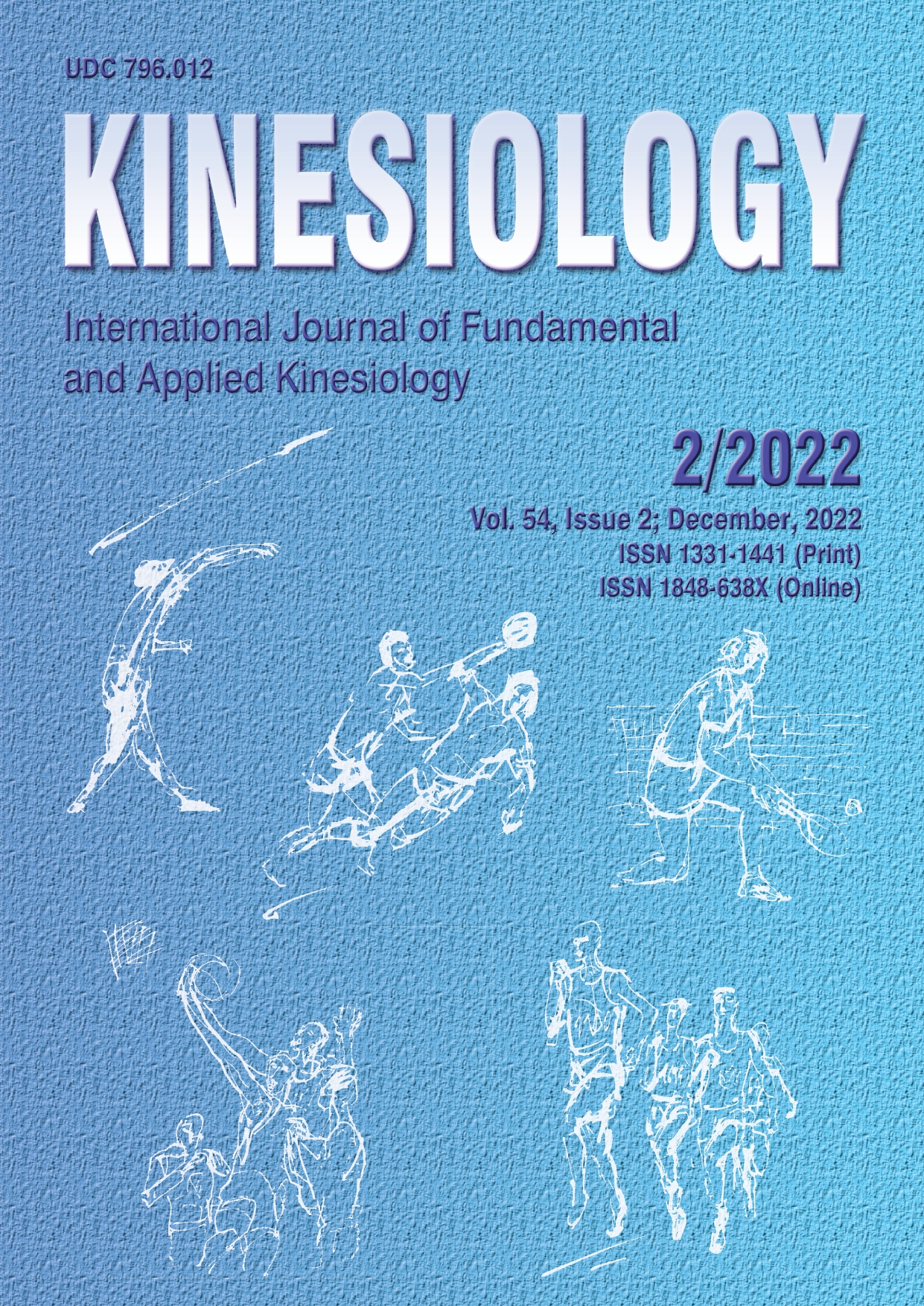THE ETIOLOGY OF NEUROMUSCULAR FATIGUE INDUCED BY THE 5-M SHUTTLE RUN TEST IN ADULT SOCCER PLAYERS
Abstract
This study investigated the etiology of neuromuscular fatigue induced by a 5-m shuttle run test (5MSRT) in soccer players. Nineteen adult male amateur soccer players (age: 20.0 ± 2.9 years) participated in the present study. Before and after the 5MSRT, they were instructed to complete a maximal voluntary isometric contraction (MVIC) of the knee extensors (KE) during and after which two electrical stimulations were applied at the femoral nerve. Voluntary activation level (VAL), surface electromyography recordings (sEMG), electrophysiological (Mmax) and potentiated resting twitch (Ptw) responses of the KE were compared between pre- and post-5MSRT. Rating of perception exertion (RPE) was also assessed before, during the test immediately following each sprint repetition and after the test. The distance covered during each sprint significantly decreased as the number of trials performed increased (p<.05). The RPE reported following each sprint significantly increased throughout the test. In addition, MVIC (-9%), sEMG (-23%), VAL (-15%), Ptw (-26%) and Mmax (~22%) of the KE were lowered from pre-to-post 5MSRT (.001 < p < .01). The 5MSRT induced a decrease of repeated-sprint running performance and MVIC of the KE. These decrements were accompanied by lowered VAL, sEMG, Ptw and Mmax values of the KE reflecting the involvement of both the central and peripheral origins in the 5MSRT-induced fatigue. Given the important muscle stress induced by 5MSRT, this strenuous test must be applied with caution, after an inevitable familiarization phase, and not during the competition period to avoid the risk of serious injury.
Key words: knee extensors, electrical stimulation, electromyography, repeated-sprint ability, perceived exertion
Downloads
Published
How to Cite
Issue
Section
License

This work is licensed under a Creative Commons Attribution-NonCommercial 4.0 International License.
At Faculty of Kinesiology we recognize that access to quality research is vital to the scientific community and beyond. Kinesiology is non-profit journal and all costs of publishing and peer review process are covered by the publisher itself or other funding sources like Ministry of Science and Education of the Republic of Croatia. Full text papers are also available free of charge at http://hrcak.srce.hr/kineziologija. There are no restrictions on self archiving of any form of paper (preprint, postprint and publisher's version).
Articles are distributed under the terms of the CC BY - NC 4.0
Kinesiology does not charge any fees to authors to submit or publish articles in our journal.


